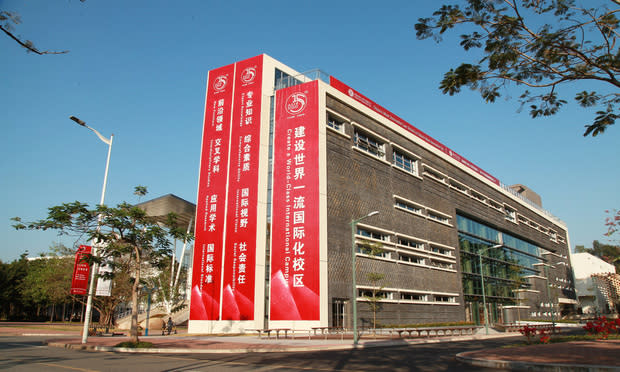AI Goes To Law School—In China
[caption id="attachment_3731" align="alignnone" width="620"]

Peking University School of Transnational Law.[/caption] Legal educators helping future attorneys prepare for 21st century careers are certainly concerned with the influence of technology on the practice of law. But increasingly, legal technology education and research often comes from the United States and isn't likely to help international law students keep pace. Peking University Law School is looking to change that. The elite Chinese law school will partner with cloud-based analytics platform Gridsum to introduce a new research center focused on examining potential applications of artificial intelligence (AI) within China's legal system. Gridsum will provide the technical and research backbone to the center as part of the partnership, drawing in part from AI technology developed for the company's "Faxin Wei Su" tool, a litigation service operating on Chinese communication platform WeChat's micro application platform. The new center, the Peking University Legal AI Lab and Research Institute, or the "Legal AI Lab," launched on Friday with a ceremony hosted by Jingyi Ye, deputy party committee secretary of Peking University. Also in attendance were Shouwen Zhang, dean of Peking University Law School and director of the Legal AI Lab; Xiaolei Yang, vice president of Peking University Law School and executive director of the Legal AI Lab; and Guosheng Qi, CEO of Gridsum. Peking University Law School and Gridsum have partnered over curricular opportunities prior to the Legal AI Lab launch. In 2014, researchers at the law school used the Gridsum's Media Dissector tool to analyze over 30,000 news reports and published a report on the media trends throughout the year. In part, this launch addresses imperatives put forth by China's State Council. In July 2017, the country's government approved an agenda, the "Next Generation of Artificial Intelligence Development Plan," to invest heavily in research and development around artificial intelligence across the nation's industries. This policy was bolstered later in the year by China's Ministry of Industry and Information Technology, which launched a three-year plan to promote the development of next generation AI technologies and create a regulatory pathway for the proliferation of AI development. "We are excited to be at the forefront of China's legal AI development and to have the opportunity to work in close cooperation with globally renowned legal academic institutions and individuals," Qi said in a statement. "The combination of Peking University's highly experienced legal community and our cutting-edge AI and big data technology will directly benefit the development and application of AI across China's judicial system as it migrates towards a 'Smart Court' initiative."

